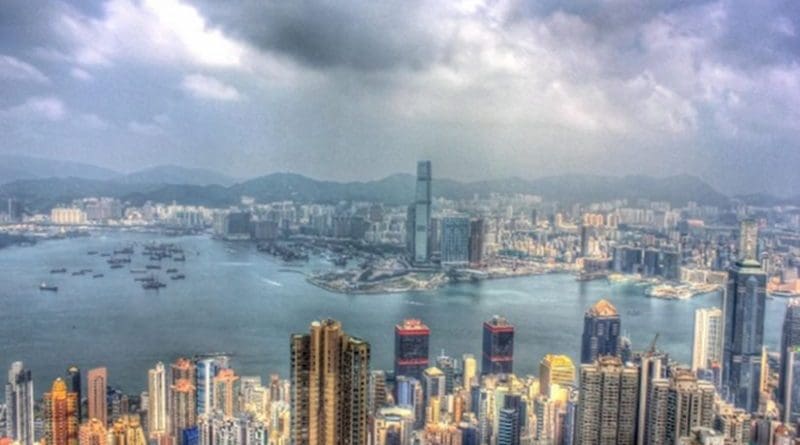Hong Kong’s New Security Law Raises Fears Of Lost Freedoms – OpEd
Hong Kong’s government has began the process of adopting a controversial new national security law that critics fear will further roll back civil liberties at Asia’s top financial hub.
Known as Article 23, Hong Kong’s own security legislation was shelved in 2003 after a previous attempt to enact it drew half a million residents onto the streets in protest over fears it would erode civil liberties.
But no such public opposition is expected this time around.
Beijing’s national security crackdown of recent years has transformed once-freewheeling Hong Kong, silencing almost all dissent by jailing dozens of opposition activists . Many civil society groups have been disbanded, and the city’s once- outspoken media outlets have shut down.
Hong Kong and Chinese authorities say the Beijing-imposed security law, which criminalizes succession, subversion, terrorism and collusion with foreign forces in vague and broad terms, has restored order to the city following the 2019 protests and deny it has curtailed freedoms.
In 1997 Hong Kong was handed back to China by the British government who ruled it since 1841 ( except 4 years of Japsnese occupation in 1941-45) .
That saw the start of a grand political experiment, as Communist China promised Hong Kong civil liberties and freedom – unavailable in the mainland – for at least 50 years under a novel arrangement called “one country, two systems”.
27 years later, that experiment is threatened with an early end as the Hongkong administration seek to implement a new security law that seeks to build on the Hong Kong National Security Law, or NSL, that China enacted in 2020.
The Hongkong government says the law is needed because the city is required by Article 23 of its mini constitution, the Basic Law, to establish its own national security legislation.
It says that despite the current calm atmosphere, the city still faces lingering national security threats from the widespread and sometimes violent protests it saw in 2019. Human rights groups claim Hong Kong’s once strong traditions of free speech, assembly and freedom of the press, that have already been muzzled since Beijing imposed the NSL in response to the 2019 pro-democracy protests, will be further now be further eroded.
The new law will be an extension of the NSL, which criminalizes terrorism, separatism, subversion of state power and collusion with foreign forces. It would add treason, insurrection, theft of state secrets and espionage, sabotage endangering national security, and external interference, as offenses. It would also expand the scope and penalties of crimes covered under existing laws, including sedition.
The 110-page Public Consultation Document on the new law explained the government’s reasoning behind the new legislation, but it failed to convince the few remaining democratic parties in the once British colony and global human rights groups. The consultation process ended on Feb 28 and the law is likely to be brought into force sooner than later.
Hong Kong’s leader Chief Executive John Lee Ka-chiu, while launching the mandatory 30-day consultation to gain feedback on the new law, argued that this is a “defensive law” to ward off attacks against the city amid escalating geopolitical tensions between China and the West. And he said this ‘can’t wait any longer’.
“The new law aims to create a stable and safe environment so that when people attack us, we will be protected. This is a law to tell people not to attack us. It is, in a way, a defensive law,” Lee said. “I hope people will see the law and know that they may try somewhere else rather than Hong Kong.”
Hong Kong authorities say that despite the current calm atmosphere, the city still faces lingering national security threats from the widespread and sometimes violent protests it saw in 2019.
The new law will be an extension of the NSL, which criminalizes terrorism, separatism, subversion of state power and collusion with foreign forces. It would add treason, insurrection, theft of state secrets and espionage, sabotage endangering national security, and external interference, as offenses. It would also expand the scope and penalties of crimes covered under existing laws, including sedition.
The 110-page Public Consultation Document on the new law circulated by the Hongkong administration seeks to lay bare the government’s reasoning behind the new legislation. But the opposition parties have raised the heckles over what they say is an ” unambigious attempt to roll back whatever is left of civil liberties ” in the once-British colony.
This writer during extensive interactions with a wide cross- section of city influentials at a policy research seminar found four major apprehensions .
* Hong Kong’s Article 23 legislation will integrate the PRC’s national security framework into Hong Kong’s legal system, impacting the city’s rule of law and foreign business interests.
* Broad and vague definitions of national security will create challenges for Hong Kong’s common law system. It will likely contribute to the erosion of legal certainty and judicial independence.
* Proposed offenses such as “theft of state secrets” and “espionage” are ambiguously defined, creating uncertainty. This may cause issues for foreign businesses collecting information for due diligence and will further chill freedom of expression in the city.
* The legislation aims to isolate Hong Kong further from the liberal democratic world, granting extensive powers to the government for political control and undermining public oversight and due process rights.
Already many top Hongkong businesses are looking to invest elsewhere, leading to fears of a substantial flight of capital, both domestic and foreign.
On condition that he is not named, a leading city intellectual appeared resigned to the inevitability of Hongkong’s ‘ divorce from the past ‘.
“Once you allow a tiger in the house, do you have a choice , you know where you are ending up,” he said. “China is cleverly using the heightened geo-political fears over Taiwan to integrate us.”

